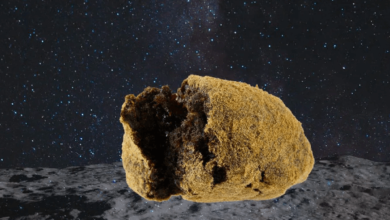What Is Cbd in Marijuana

Cannabidiol, commonly known as CBD, is a compound derived from the cannabis plant. Unlike THC, CBD does not induce psychoactive effects. Its growing reputation stems from potential therapeutic applications, such as alleviating pain and reducing anxiety. As interest in CBD expands, understanding its mechanisms, benefits, and legal implications becomes increasingly important. This exploration reveals complexities that warrant further examination, particularly regarding its integration into modern healthcare practices and regulatory frameworks.
Understanding Cannabidiol (CBD) and Its Origins
Although often associated with the psychoactive effects of marijuana, cannabidiol (CBD) stands out as a prominent cannabinoid that does not produce such sensations.
Its history dates back to the early 20th century, with significant advancements in CBD extraction techniques enhancing its accessibility.
These developments have allowed for a clearer understanding of its chemical properties and potential uses, distinguishing CBD from other cannabinoids within the cannabis plant.
The Therapeutic Benefits of CBD
The therapeutic benefits of cannabidiol (CBD) have garnered significant attention in both scientific research and popular culture. Evidence suggests that CBD may provide pain relief for various conditions, making it a promising alternative to traditional medications.
Additionally, its potential for anxiety reduction has led to increased interest among those seeking natural remedies. As research continues, the implications for holistic health remain significant.
How CBD Works in the Body
CBD interacts with the body's endocannabinoid system (ECS), a complex network of receptors, enzymes, and endocannabinoids that regulates various physiological processes.
This CBD interaction influences neurotransmitter release, modulates pain perception, and can impact mood and immune response.
Legal Status and Regulations Surrounding CBD
What factors contribute to the complex legal landscape surrounding CBD?
The legal implications of CBD regulations vary significantly across jurisdictions, influenced by local laws, federal guidelines, and the source of CBD (hemp versus marijuana).
This inconsistency creates challenges for consumers and businesses alike, as differing regulations can impact product availability, quality standards, and overall market dynamics, necessitating ongoing attention to evolving legal frameworks.
Conclusion
In summary, cannabidiol (CBD) represents a significant advancement in the understanding of marijuana's therapeutic potential, akin to discovering a hidden gem within a vast landscape. Its non-psychoactive nature allows for a wide range of applications, appealing to those seeking relief without intoxication. As research continues to unfold, the legal landscape surrounding CBD is evolving, paving the way for broader acceptance and utilization in both medical and wellness contexts. The future of CBD promises to be both impactful and transformative.






